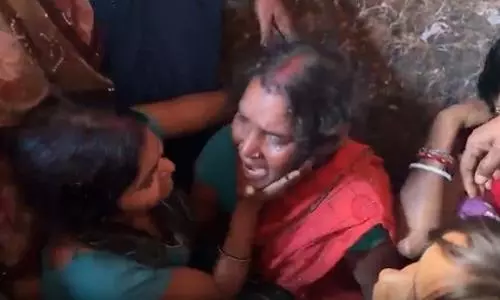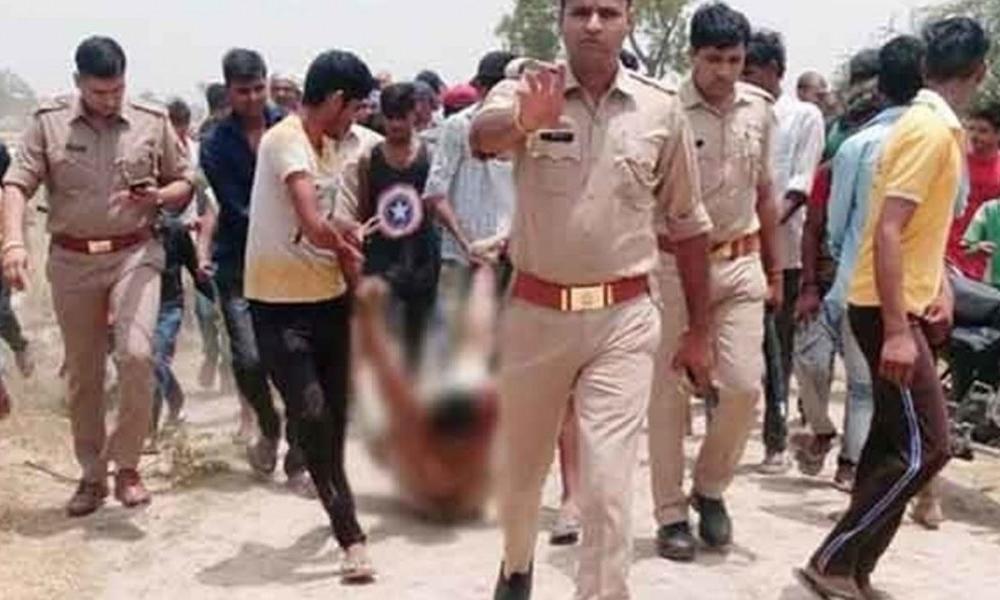
Hapur lynching of Muslim goat trader case: 10 Hindu men sentenced to life
text_fieldsA court in Uttar Pradesh has sentenced 10 Hindu men to life imprisonment for their involvement in the brutal lynching of a Muslim goat trader, Qasim, in Hapur back in 2018.
Additional district and sessions judge Shweta Dixit, in her 157-page judgment, characterized the mob lynching of 45-year-old goat trader Qasim in Hapur as a "heinous" crime, emphasizing that the behaviour of the mob constituted a "warning" and "threat" to society at large.
The incident, which occurred in Bajhera Khurd village, shook the nation as it underscored the dangers of communal tensions fuelled by fabricated rumours of cow slaughter. Qasim, a 45-year-old goat trader, fell victim to a frenzied mob that targeted him and his neighbour, Samaydeen, while they were gathering fodder for cattle. Despite Samaydeen's attempts to reason with the mob, both he and Qasim were subjected to vicious beatings, with the assailants chanting anti-Muslim slogans and accusing them of cow slaughter.
The court's judgment not only condemned the heinous nature of the crime but also highlighted the glaring lapses and negligence on the part of the state police during the investigation. Judge Dixit criticized the failure to conduct an identification parade of the accused, despite directives from the Supreme Court. Additionally, she noted the mishandling of crucial evidence, such as a broken compact disc containing incriminating footage and the failure to submit necessary certificates for admissible evidence.
The conviction of the 10 perpetrators, including individuals named Yudhisthir, Rakesh, Kanu, Sonu, Mangeram, Rinku, Hariom, Manish, Lalit, and Karanpal, represents a step towards justice for Qasim's family and the broader Muslim community. However, it also raises questions about the prevalence of vigilante violence and the role of religious and caste dynamics in such incidents.
Qasim's brother, Saleem, expressed hope that the verdict would serve as a deterrent against future acts of mob lynching, emphasizing the need for perpetrators to face severe consequences for their actions. Saleem, who has been supporting Qasim's children in the aftermath of his death, acknowledged the challenges faced by his family during the prolonged legal battle.
The case not only shed light on the pervasive nature of hate crimes but also exposed the vulnerability of marginalized communities, particularly in the face of entrenched caste-based discrimination. Despite receiving a police guard for security, Saleem remains apprehensive about potential reprisals from the convicted men's families, who belong to a dominant caste in the region.
The court's scathing indictment of the police's handling of the case underscores the systemic issues within law enforcement agencies and their failure to uphold justice impartially. The lack of accountability and transparency in the investigation process has further eroded public trust in the justice system, leaving victims and their families to navigate a complex and often hostile environment.























